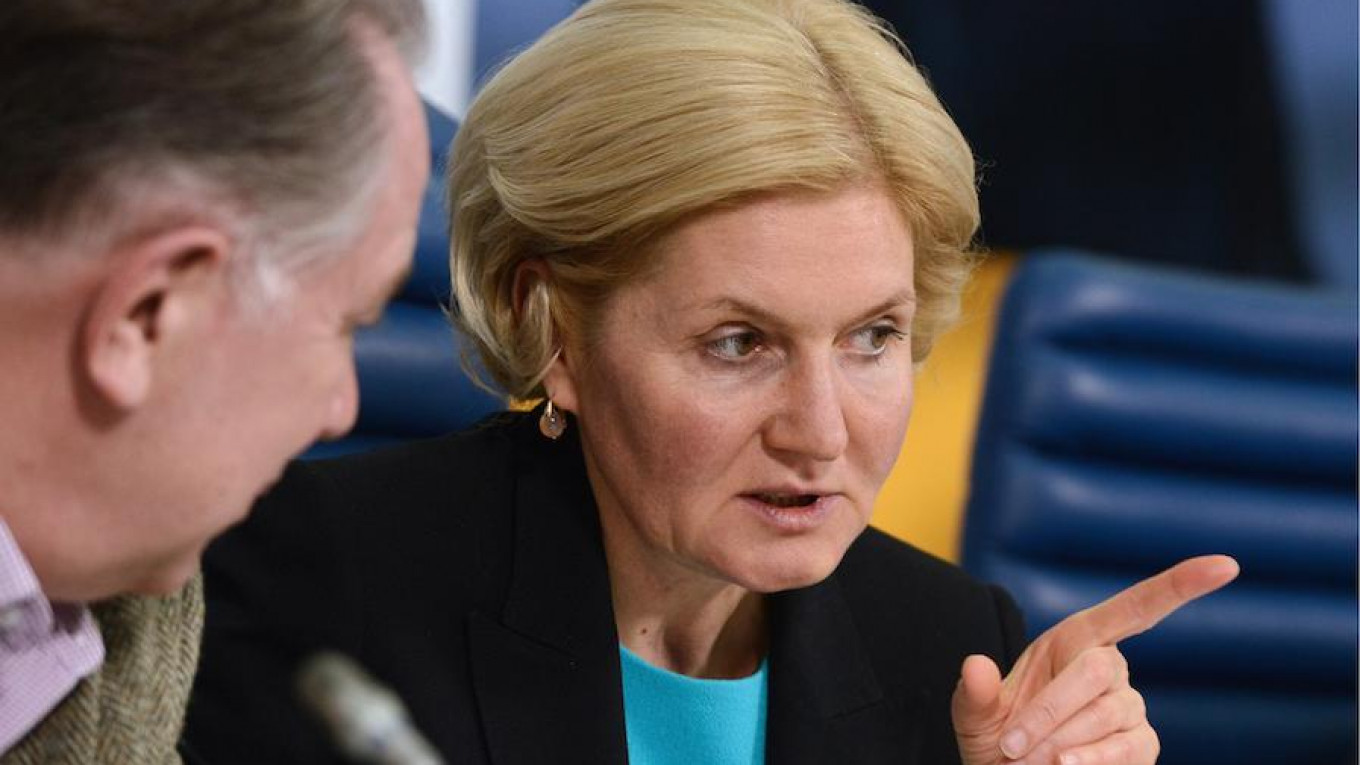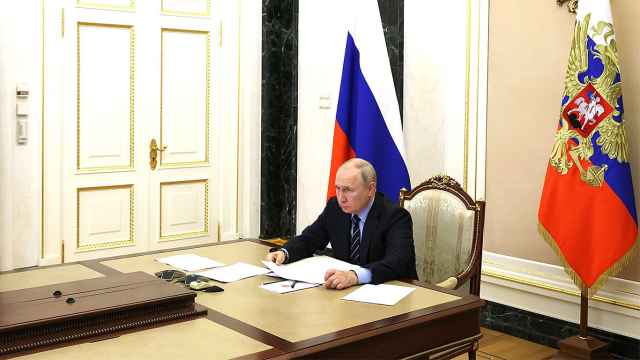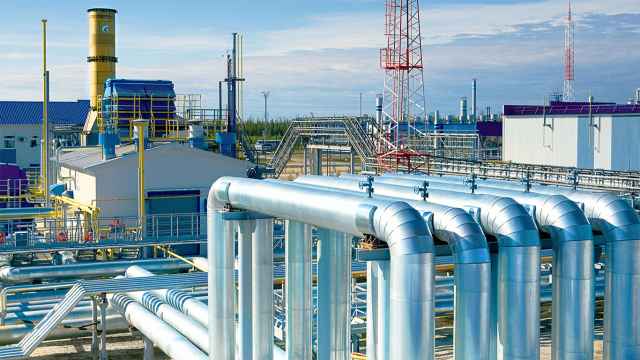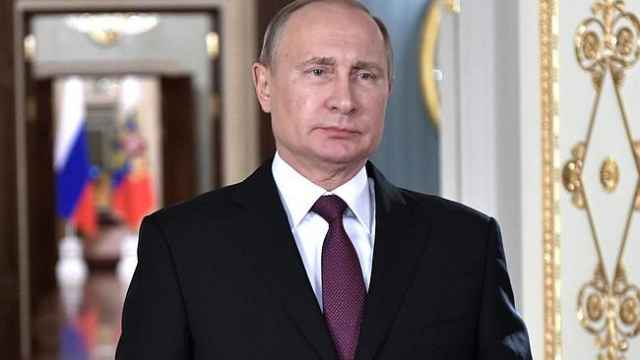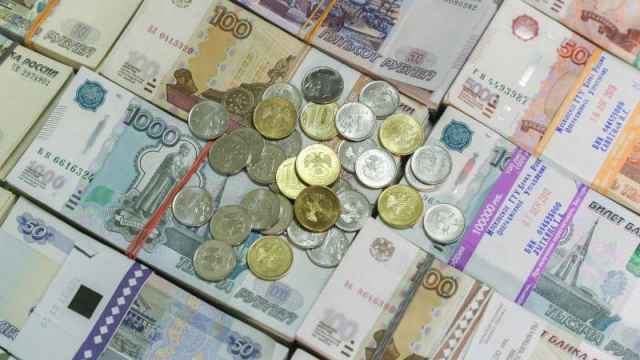A popular maxim states that only two things are certain in life: death and taxes. In Russia, the second has always been more of a question. On Nov. 22, Deputy Prime Minister Olga Golodets added further uncertainty by questioning the bedrock of Russia’s tax system — its famed 13 percent flat income tax rate.
“Freeing those on the lowest income level from income taxes is one of the most important steps to overcoming poverty,” she said.
So far, the cabinet doesn’t appear to be in a particular hurry to replace the flat tax with a new, progressive tax system. No major meetings have been held on altering the income tax and Russia’s official tax policy for 2017-2019 contains no similar proposals.
But as Russia weathers an economic crisis, Golodets’ announcement shows that one of the key neoliberal achievements of Vladimir Putin’s first term as president now potentially finds itself on the chopping block. And it may be brought down by Russia’s long tradition of economic populism.
“There is a clear desire to raise taxes after the 2018 presidential election,” says economic analyst Boris Grozovsky. “Raising the income tax is a more popular idea than raising the value-added tax – which would affect business – because it’s easy to sell politically: a social measure to help the poor.”
The move would indeed prove popular. All three of Russia’s pro-government opposition parties – the Communist Party, A Just Russia, and The Liberal Democratic Party – ran on parliamentary platforms that included instituting a progressive income tax and excusing Russia’s poorest citizens altogether. Recent data from Credit Suisse, which shows the top tenth of Russian households accounting for 89 percent of all household wealth, suggest that the reform would also have a significant receptive audience across Russian society.
But the change would create challenges. Before 2001, Russia had a progressive income tax with a maximum tax rate of 30 percent. But many Russians did not pay taxes, and the state lacked the means to enforce the tax laws. To a large degree, the introduction of the low flat tax solved that problem.
“It boosted state revenues as taxpayers stopped hiding and brought their income in from the shadows,” Grozovsky says.
It also became a feature the authorities tried to promote abroad. The flat tax gained particular public attention in 2013, when French actor Gerard Depardieu sought and eventually received Russian citizenship to decrease his tax burden.
Today, however, the situation is different. After two years of recession, Russia’s Reserve Fund is expected to run dry by mid-2017. Meanwhile, since the 1990s, the state has built up a “repressive machine that can find non-tax paying citizens and punish them,” Grozovsky says. A progressive income tax would be doable and could allow the government to extract more tax revenues from wealthy Russians while also helping the poor.
Still, Vladimir Nazarov, director of the state Research Institute of Finance, says the reform remains unlikely. While freeing the poor from income taxes is “quite possible” – provided that economic growth resumes — Nazarov says there little sense in fundamentally altering the income tax.
“The flat tax is our competitive advantage,” he says. “It would be foolish to get rid of it.”
There are other reasons to question the re-introduction of a progressive income tax. First, Russia’s richest citizens are likely to offshore their wealth should their tax burden increase significantly. Additionally, since, in 2015, income taxes were the main source of budgetary income for Russia’s regions, the country’s poorest regions would lose out disproportionately.
But the issue is unlikely to disappear, given its political support among the pro-government opposition. Finance Minister Anton Siluanov admitted as much during a Nov. 17 meeting with the Communist Party.
“We think this issue can be re-examined after 2018, when the economic situation stabilizes and we improve the federal and regional budgets,” Siluanov said.
A Message from The Moscow Times:
Dear readers,
We are facing unprecedented challenges. Russia's Prosecutor General's Office has designated The Moscow Times as an "undesirable" organization, criminalizing our work and putting our staff at risk of prosecution. This follows our earlier unjust labeling as a "foreign agent."
These actions are direct attempts to silence independent journalism in Russia. The authorities claim our work "discredits the decisions of the Russian leadership." We see things differently: we strive to provide accurate, unbiased reporting on Russia.
We, the journalists of The Moscow Times, refuse to be silenced. But to continue our work, we need your help.
Your support, no matter how small, makes a world of difference. If you can, please support us monthly starting from just $2. It's quick to set up, and every contribution makes a significant impact.
By supporting The Moscow Times, you're defending open, independent journalism in the face of repression. Thank you for standing with us.
Remind me later.


